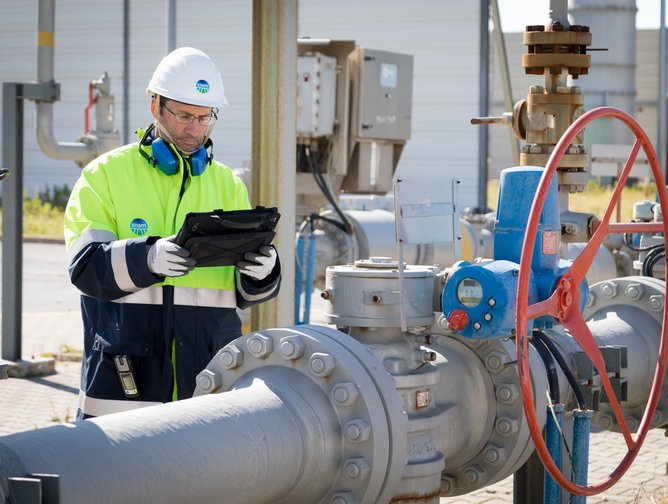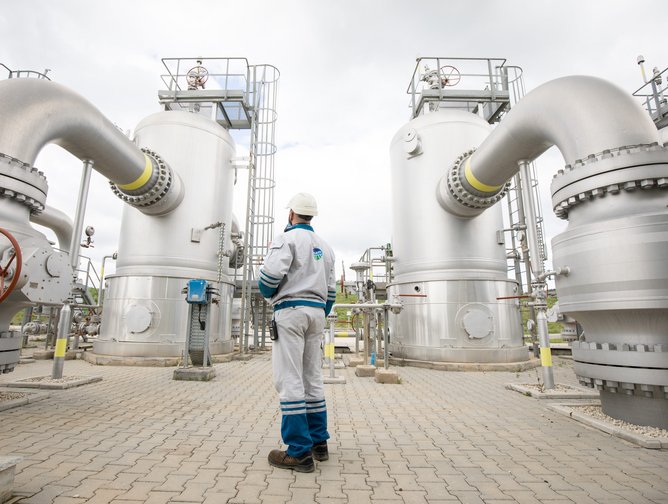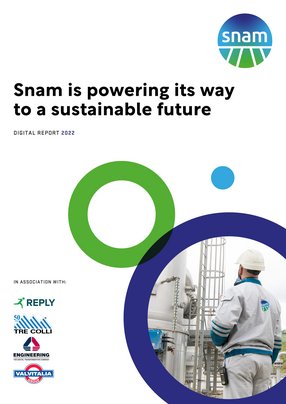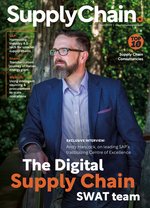The move to net zero carbon emissions is a focus for all businesses right now, but for giant energy companies such as Snam, sustainability is about far more than greening-up internal working practices and encouraging staff to reduce their carbon footprint.
Snam is a world-leading energy infrastructure operator, and one of Italy's largest companies. Sustainability for Snam is about transitioning its entire operation, from fossil-based gas to sustainable sources of energy.
This is why Snam is in the midst of a business transformation programme that is seeing it deploy data-driven Industry 4.0 technologies across its supply chain. Along the way, it has not only transformed its processes but also its mindset, from one of ‘cost’ to one of ‘value’, especially when it comes to efficiency and sustainability.
Leading the Company’s digital transformation is Claudio Farina, Executive VP of Digital Transformation & Technology (DT&T).
Farina was once with Boston Consulting Group, where energy was one of the sectors on which he focused and therefore in Vodafone. He says innovation and digitalisation has been a “leitmotif” throughout his career.
Snam’s digital transformation is being built on artificial intelligence (AI), and an Industrial Internet of Things (IIoT) infrastructure, comprising networked sensors, instruments, and devices - all of which feed data into hybrid cloud-based solutions, to give Snam end-to-end visibility of its supply chain.
“Our role in DT&T is as an enabler for transformation and digitalisation,” explains Farina. “It’s our job to make core processes more effective, efficient, flexible and fluid.”
In terms of technology-driven changes at Snam, he says the key has been de-bottlenecking the value chain of data, from harvesting it in the field, to gaining insights from it and then storing it.
“The speed of growth of Industry 4.0 technologies like AI and digital twins is exponential,” he says. “Our ability to process and store data is incomparable when compared with early 2000.”
Data is increasingly supporting the way Snam manages its assets,” Farina continues. “It is also making our assets intelligent, so that they are increasingly capable of self-diagnostics and self-regulation.”
Thanks to digitalisation, assets in the Snam energy supply chain can even suggest courses of action, based on available data.
“Although people have the final decision,” Farina says, “data is helping us to preserve operational integrity and to optimise emissions and consumption”.
It is also supporting Snam in its transition away from fossil-based gas to sustainable energy sources, such as biomethane and hydrogen.
Farina adds: “It’s an ambitious multi-year programme, and it needs deep and broad footings to succeed. The ongoing transformation processes comprise 55 staffed projects and planned investment of €500m.”
He says that although data-harvesting technology is what defines the transformation, the most important factor will always be Snam’s people.
“Paradoxically, thanks to digitalisation and automation, our people are even more at the centere of everything we do. I think that ultimately this is what will truly make the difference.”
He continues: “Supported by technologies and data, our supply chain colleagues will be able to strengthen the entire value chain, because they’ll be better placed to manage tenders, offers and negotiations with our partners.”
Specific ways in which technology is helping Snam streamline and automate its ways of working include a solution built on robotic process automation (RPA) - also known as ‘software robotics’. This helps it generate shorter vendor lists on tenders, but without the endless hours of clerical spadework.
The RPA solution applies different criteria, such as geo-referencing, analysis of relevant certifications and also of turnover. This cuts down workload in this area from days to minutes.
Snam has also rolled out an AI admin solution that automates the checking of vendor documents, including Supplier contracts. This saves huge amounts of time for staff in Snam’s Sourcing, Legal and Risk Management Teams.
Another important figure in Snam’s transformation is Guido Amendola, Senior VP Corporate & Group Supply Chain. Amendola has broad-based procurement experience, having been Group CPO at BNP Paribas bank in Italy and Supply Chain Director at telecoms company, PosteMobile.
On sustainability, Amendola says that, in procurement in general, there needs to be a change from the old ways of working to “a new more entrepreneurial approach where innovation becomes the norm”.
This is a journey that starts on a consistent people’s consciousness about the new role of supply chain departments. To do this, he says, Snam launched the Supply Chain Academy, a programme that provides buyers, senior managers and directors with business-led strategic coaching around most important trends and topics in supply chain.
And when it comes to sustainability, Amendola is passionate. He says “helping drive the company’s net zero carbon programme has been exciting” - as has supporting Snam’s ongoing transition from fossil-based gas to sustainable energy sources.
He believes that an important part of Snam’s sustainability drive is that stakeholders “continue to be engaged and involved every step of the way”.
This is why Snam has launched a Change Management Initiative in its supply chain with an incubator team called ProcuLab which, says Amendola, “is an ideas booster composed of people from across our supply chain, who have a balanced mix of gender, skills and experience”.
He adds: “In ProcuLab there is no hierarchy, no rules. All that matters is valuable ideas. As well as generating ideas that continue to help us, I think it has also helped with morale, because it brought our people closer together when remote working during the pandemic”.
Amendola also feels strongly that having the right mindset will continue to be the bedrock upon which the process of change is built.
“Our culture is to challenge ourselves daily, so we can improve profitability and operating efficiency,” he says.
A third Snam executive who has been important to its ongoing reinvention is Loris Spaltini, Executive VP of Corporate Services, who reports to Snam’s CEO. Spaltini joined the company in 2018 and has prior experience in the steel and automotive sectors.
Although the transition process has gone well, Spaltini admits it has been hugely challenging at times - not least during the height of the pandemic, during which time Spaltini and his team “had to guarantee supply continuity by supporting critical suppliers, as well as reinforcing procedures and supplier-verification compliance.
They also had to ensure the security of Snam assets, including not only gas pipelines and plants but also the software applications that allow it to control the Italian gas network. “Our cyber team did an amazing job,” Spaltini says.
As well as keeping operational matters on course at the height of Covid, Spaltini’s team were also tasked with ensuring its own people were taken care of.
He said: “This meant not only developing internal health protocols to safeguard our workers’ safety but also ensuring they were getting the psychological support they needed.”
As well as providing personal support and medical care for its own people, Snam also took on responsibility for helping the wider Italian public, by donating much-needed medical equipment and supplies to healthcare providers across Italy.
Now, as the pandemic is beginning to ease its grip, Snam’s supply chain is in a good place, says Spaltini. “Despite Covid, we’ve succeeded in continually improving, in terms of organisational and technological development, as well as in terms of the growth of our people and our attention to sustainability issues. In Europe, we are a fundamental player in the energy transition movement.”
“Sustainability is no longer seen as an added benefit,” Spaltini adds. “It is a core operational and corporate goal. We have moved away from a ‘cost’ mindset, to a ‘value’ mindset - not just on sustainability, but in everything we do.”






